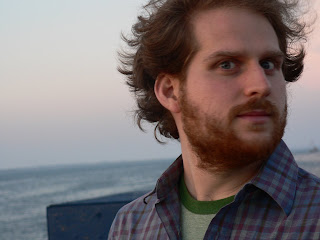I went to the Harry Potter movie the other night with Farrah and her niece -- her parents have been in town, hence the hiatus in posts -- and enjoyed it too much to join the general hoot. Afterwards, though, what stayed with me regarding the basically decent directing job from British TV guy David Yates was the weirdness of the it'll do edits, specifically in one scene with Robbie Coltrane talking about his giant half brother. It seemed almost glaringly obvious that the scene had been pared down, probably for time reasons though just as possibly to excise some gaffe or invisible issue. It made for a certain emotional hiccup, as I felt like the emotional beats seemed suddenly to speed up, or skip over the information needed to convey them. This is perhaps more generally the feeling that an adolescent Harry Potter reader might have as certain scene bits suddenly glide past wonderful or even crucial details too necessary to the shape of the experience to lose. And yet there is the obvious other argument for time's winged chariot, and the feeling of the well-oiled machine, even one missing a few aesthetic but not technically necessary parts, churning forward. Better a two hour movie where a few plot holes sag on the drive home from the theater than a three hour movie with a third hour ostensibly about the wish to drive home.
One of the weird things about deleted scenes in the DVDs from movies - an effect which is almost always unsettling and delirious in equal parts, as if there is this possibility that with more scenes one could eventually have a special, special DVD experience that would actually contain the entirety of the beloved character's life, perhaps lived in a equal or even longer span than the viewer's own (like Borges' map with a 1:1 scale to reality) - is that they are almost always bad. That is, the director was almost always right to take them out, to substitute the desire for completeness with the wish for speed. These scenes show the lines in some weird state of overstatement, or the actors' flu not quite makeup-ed over, or the camera not quite so. And then the cut says to the viewer: get on with your life, there is something more important than this and yet this is all you need to know. You don't need everything in order to have everything; you can split the difference after all between a Platonic realm of the imaginary deleted scene and the reality of the impeded view.
Still from the seat at the editing suite it is only about telling the most pared and efficient story, I assume, or at least the most believable and effective one, which usually comes to the same thing. And so movie after movie (especially in its Hollywood, test-screened incarnation) has this deliberate feeling of adulteration, of those moments when a corner has been cut because it should have been cut but one imagines the next, impossible take of the scene that could have incorporated this knowledge better, more fully, more truly. As if the producers are cheating the actors, or the actors the characters, or the characters the format they deliver themselves in. Is this to say the difference between good bad filmmaking and bad good filmmaking? The quality of invisibility? At the same time one must appreciate these moments for their window into the process even as the actual process remains cloaked. Like performances by certain actors whose stardom ups the ante on their "acting" to impossible degrees of sweat, the work is more important than what it produces. One has to appreciate, someone is trying.
Subscribe to:
Post Comments (Atom)

No comments:
Post a Comment